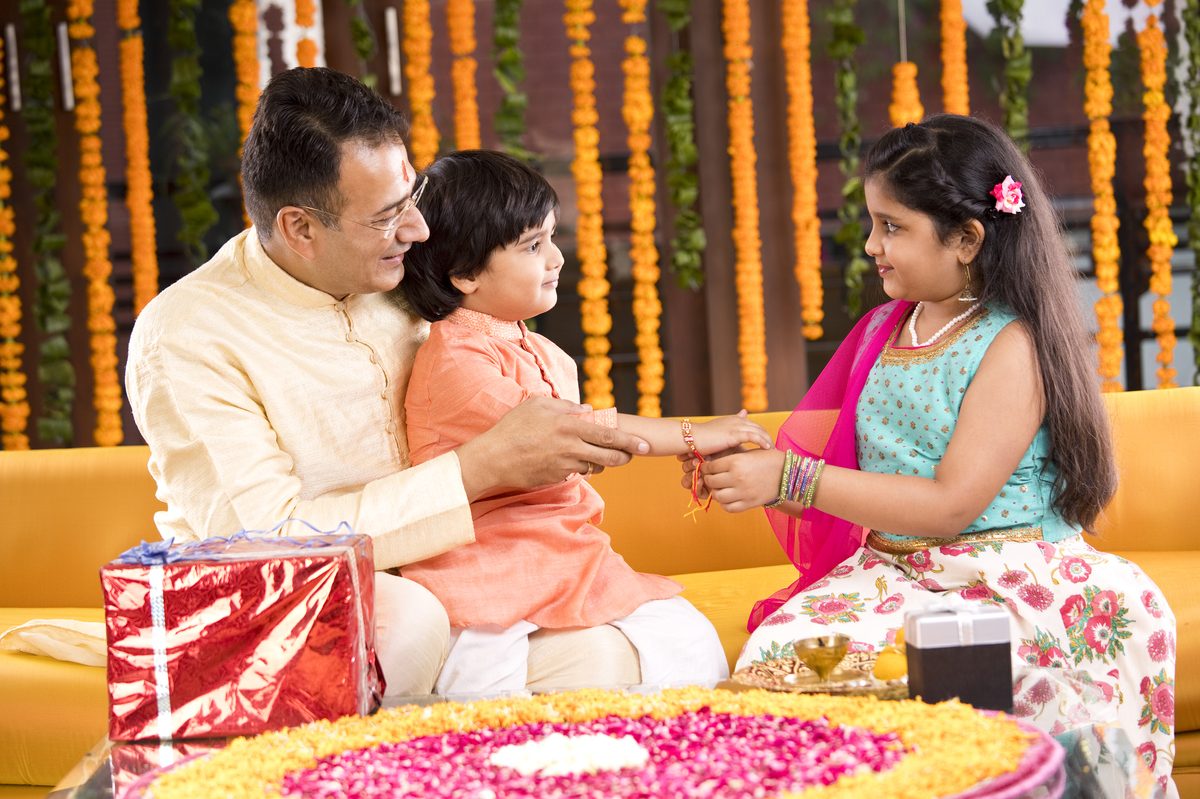Their ‘lost Jerusalem’
Historical events through 2023 and 2024, and the shaping of politics and diplomacy, are providing intriguing insights into our world, bridging the past with a violent, volatile present.
The festival celebrates the bond between brothers and sisters and brings families and relations closer and it gives an opportunity to siblings, living far from each other, to stay connected, even if virtually.

Photo: iStock
Raksha Bandhan is all about gleaming shops and markets, heaped with beautiful merchandise, displayed to entice the onlookers, while women throng the stalls. The days leading to the festival are some of the best days in the year in India. The markets lighten-up, as the onset of the Indian Festival Season is marked with celebration of Raksha Bandhan.
The tradition dates back several generations. Notwithstanding certain historical references to the festival there is no concrete evidence about how and when the celebration started. The most famous legend can be sourced back from the time of Mahabharata and other historical anecdotes from the Mughal period.
Although there are many real and mythological stories associated with the festival, Raksha Bandhan holds great significance as a day that celebrates the love and respect among siblings.
Advertisement
Talisman to ensure safety and protection
Raksha Bandhan however isn’t all about celebrating brother sister bonding but in many cultures, wives tie a thread of protection on their husband’s wrist. In many other cultures sisters-in-laws too exchange this bond of threads to ensure the love and bonding within the families.
Taking reference from Hindu mythological texts, the tale of Lord Indra and his wife Indrani stands out in this context. The intent behind a wife tying a talisman or a thread around husband’s wrist is for protection (Raksha) and good luck. The celebration was thus named as Raksha Bandhan and the day when Indrani tied the thread on her husband’s wrist, was a full moon day (Poornima) in the Shravan (July-August) month of the Hindu calendar. That is why Raksha Bandhan is celebrated on this day every year.
Legends and tales of Raksha Bandhan
Draupadi tied Rakhi on Lord Krishna’s wrist
According to ancient scriptures, Lord Krishna was once fighting with the evil King Shishupal, to protect the people. The Lord bore an injury and was left with a bleeding finger. Draupadi tore her saree and tied a piece of cloth around Krishna’s wrist. He was very impressed by her gesture and promised to protect her if ever she needed help. When the Kauravas tried to strip her robes, Krishna appeared and saved her from honour.
The legend of Yama and Yamuna
It is believed that Yama, the deity of death, gained immortality when his sister, Yamuna tied rakhi on his wrist. Yama also affirmed that anyone, who stood by his promise to protect his sister, after the sister ties rakhi on his wrist, would be blessed with a healthy and everlasting life.
Goddess Lakshmi and King Bali
The Hindu mythology believes that King Mahabali was a devout worshiper of Lord Vishnu. The Lord, impressed by his deep devotion, took to caring for his kingdom. To look after his kingdom, Lord Vishnu had to leave his abode in Vaikuntam, leaving Goddess Lakshmi, behind. The Goddess was distraught by Lord’s Vishnu’s decision and she knew that she could not talk him out of his commitment. So, she decided to visit the kingdom, on Shravan Purnima, by concealing her identity. After tying rakhi on Mahabali’s wrist, she revealed her identity and shared her reservation with the king. The king was touched by her plea and in return, begged Lord Vishnu to go back to Vaikuntam. Raksha Bandhan is also referred to as the Baleva festival in some cultures.
Mughal Emperor Humayun and Rani Karnavati
Once when Mewar was attacked by the king of Gujarat, Bahadur Shah, Rani Karnavati, a widow herself, was very concerned about the honour of thousands of her women subjects. She sent a bejeweled Rakhi to Mughal emperor Humayun, who had already captured Delhi Throne, by then, seeking his assistance. Humayun felt honoured and obliged with her request, and moved his forces towards Chittorgarh. However, by the time the forces reached the fort, the womenfolk along with the queen, committed jauhar (self immolation) and chose death over dishonour.
King Porus and Alexander’s wife
Alexander the Great, invaded the Indian sub-continent by 300 B.C. Although he was never defeated in his conquests, this time he faced a formidable opponent, King Porus. Alexander’s wife, Roxana feared for his defeat and death. She came to know about the Raksha Bandhan festival of the region from her close aides. She sent a Rakhi to Porus, and asked him to ‘pull punches’ on Alexander and not to kill him, if they came face-to-face in the war. According to various folklores, this is one of the reasons Porus lost the war, as he was bound by the promise he made in return of the Rakhi.
All stories apart, the festival is keeping the sense of belonging alive. It is great to see families come together and celebrate happiness and joy. Not to forget the assortment of sweets and snacks that they gorge on!
Advertisement